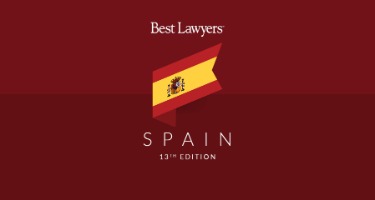Bitcoins—and cryptocurrencies in general—have experienced a meteoric rise in 2017 of close to 1,300 percent, reaching historic highs on December 17 when its price was just 100 dollars short of reaching the barrier of $20,000.
Notwithstanding the above-mentioned, one thing is clear: tax authorities are always on the lookout. In this sense, the tax treatment applicable to these cryptocurrencies has been outlined through different binding consultations issued by the Spanish tax authorities. In essence, cryptocurrencies shall be taxed in a similar way to foreign currencies; that is, on one hand, they are exempt from VAT because they are considered a means of payment, and on the other hand, the income derived from trading with them will be taxed as capital gains in the Spanish Personal Income Tax.
VAT: Bitcoins as a means of payment are exempt from VAT.
The European Union considers cryptocurrencies to be a means of payment, especially after several rulings of the European Court of Justice. This is particularly relevant since VAT is a Europe-wide harmonized tax, which led the Spanish tax authorities to also adopt this conception of cryptocurrencies. They did so in 2015 when the Spanish General Directorate of Taxes issued various binding consultations stating that cryptocurrencies shall be treated as a legal means of payment in terms of VAT. The consequence of this is that the transfer of Bitcoins itself is exempt from VAT. That is, they are treated as if they were a real currency.
This means, for instance, that if someone bought goods in a physical shop and paid with Bitcoins, the product would include its corresponding VAT as usual and that would be all in terms of VAT. No VAT would be charged for the transfer of Bitcoins from the buyer to the seller in exchange for the goods acquired. They are treated like any other currencies, such as euros or dollars.
Another example could be a simple Bitcoin trading activity where the cryptocurrencies are acquired and sold in exchange for euros. In this case, as in the previous case, since Bitcoins are considered a means of payment for VAT purposes, it will not be necessary to apply VAT to this sale.
Spanish Personal Income Tax: Bitcoins as foreign currency, generating capital gains and losses.
In terms of Spanish Personal Income Tax (SPIT), Bitcoins are treated like any other foreign currency. The consequence of this is that each time a Bitcoin is transferred by the taxpayer (e.g., because the taxpayer sells Bitcoins or buys another asset paying with Bitcoins), a capital gain or loss will be generated in terms of SPIT. Note that capital gains or losses shall be calculated as the difference between the transfer price and the acquisition cost. If a transfer of Bitcoins derives in a capital gain, it will be taxed at a progressive tax rate ranging from 19 percent to 23 percent, depending on the total amount of savings income subject to taxation.
In any case, this matter is very recent, and there are still some minor points to be clarified—not to mention other more complex scenarios not analyzed yet—so we cannot rule out further consultations of the Spanish tax authorities delving into the tax treatment applicable to Bitcoins.
----------------------------
Mariano Roca is a tax and private client practitioner focused in corporate and individuals advice (specialized in tax, wealth and inheritance advice for HNWI). He began his professional career in Cuatrecasas Gonçalves Pereira from 1997 until 2012. In 2012, he joined KPMG from 2012 until 2015 where co-led the family business and private client practice in the Barcelona, Girona, Balearic Islands, and Andorra offices. On January 2016, he joined Marco Legal, Abogados & Economistas, leading as a partner the firm’s tax department. Mariano is listed in Best Lawyers™ since 2013 and was appointed as “Lawyer of the Year” in 2014 and 2015. He has been once again recognized as a “Lawyer of the Year” in tax practice for 2018.
































